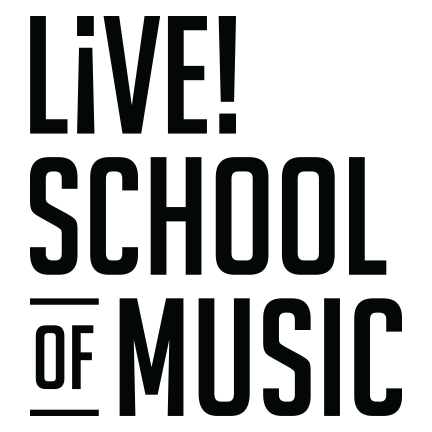To Be Among the Legends: Ready to learn how to play guitar?
By Mark Meneses
Slash. Kurt Cobain. George Harrison. Name any musical legend, and chances are they played guitar.
Though a multitude (literally hundreds!) of other instruments exist in the music world, it seems that most new musicians initially pick up those six strings. Who's to blame them? The guitar is glamorous and intense, and who wouldn't want to rip it onstage like Satriani or Hendrix?
So here we go: let’s talk about what it means to play, practice, and immerse yourself in the guitar world. We sat down with Nick Ramliak, the “guitar doctor" of LMSOM, to ask him some questions about what seems to be the most popular instrument.
Guitars are all different.
You have to be selective and know what you’re looking for. You wouldn't wear 5-inch stilettos to go hiking or flip-flops to a fancy dinner. The same goes for guitars: different types are used for different things. And as Nick explains to us, the strings on a guitar can determine a lot.
"Nylon is traditionally for classical guitar, even though it's used so much in folk, jazz, and other idioms. Steel strings are more pop, rock and blues."
It doesn't just have to do with the music; as he elaborates, "Nylon is easier on the fingers, and you won't get as much of a callus. The bridge is a little different. Steel string is usually the way to go for beginners," and continuing, "Electric guitar needs less work, but touch sensitivity is high; it's easier on the fingers while steel strings require more pressure."
If you're looking for a guitar built for a younger student or a smaller hand, quarter-sized guitars are also available. These are slimmer, more compact versions of their full-sized counterparts, and they can still rock n'roll.
What about gear?
Amps are a big factor in determining the kind of sound a guitarist wants to incorporate into their music. "I'd suggest to go with Stagg; they make great and inexpensive amps and guitars."
However, a big turn-off for most parents is the price tag of many of these instruments. Places like Guitar Center have beginner packages for new music students, including guitars, amps, tuners, and cables, and they won’t hit your wallet as hard. "You always want to work your way up with your guitar beginners shouldn't really buy anything too expensive, specially if you run the risk of ruining it."
And while on hardware, what kind of guitarist wouldn't be intrigued by the prospect of owning and using their pedalboard? "Vintage and analog pedals — there's nothing better." Of course, a beginner shouldn't start with the high-end stuff. Nick recommends a digital board, something along the lines of a Line6 multi-effects board, to familiarize yourself with the habit and use of the tool. "Start with the basics — it's a good way to get pedals into your arsenal."
Practice, practice, practice!
Figuring out how to work with your pedals will take some practice, and so will learning guitar! Like any instrument, you must take the time to see (or hear) the results. But we know practicing is easier said than done — Nick has some wise words on how to do it the right way:
"Practice is always about conquering new ground. It 's very seductive to play what you know over and over, but that's not practicing, it's enjoyment.” This is important for any musician: PUSH YOUR BOUNDARIES! It’s exciting to get behind the guitar, but it’s even more exciting to start making mistakes and learn things you didn’t know before.
Monitoring what you play and when you play is a big factor in reaching higher ground with your guitar. It's a process and will not all happen at once. Think of it as a ladder, and chords are the rungs: "You go from two chords to five chords to seven chords, you work your way up, and you learn a lot through that." Also, "Don't sit there and try to play along with actual song either. Use a metronome and play it a lot slower."
There you have it: all of our (Nick's) guitar secrets, exclusively yours. The most important piece of wisdom is to "have patience; you might wind up not enjoying it and putting it away a week later, as I did. But a year later, I never put it down. Patience is key to everything that you're learning. Everyone wants instant results. But patience is the absolute most important thing."
Not sold on the guitar? There are many other instruments to pick up, from bass to oboe to melodic synthesizers. We believe no one should have to limit themselves to just one instrument — the fun of music is trying new things all the time. LIVE offers tutoring on virtually every popular instrument and instrument rental in case you're not ready to commit just yet.

